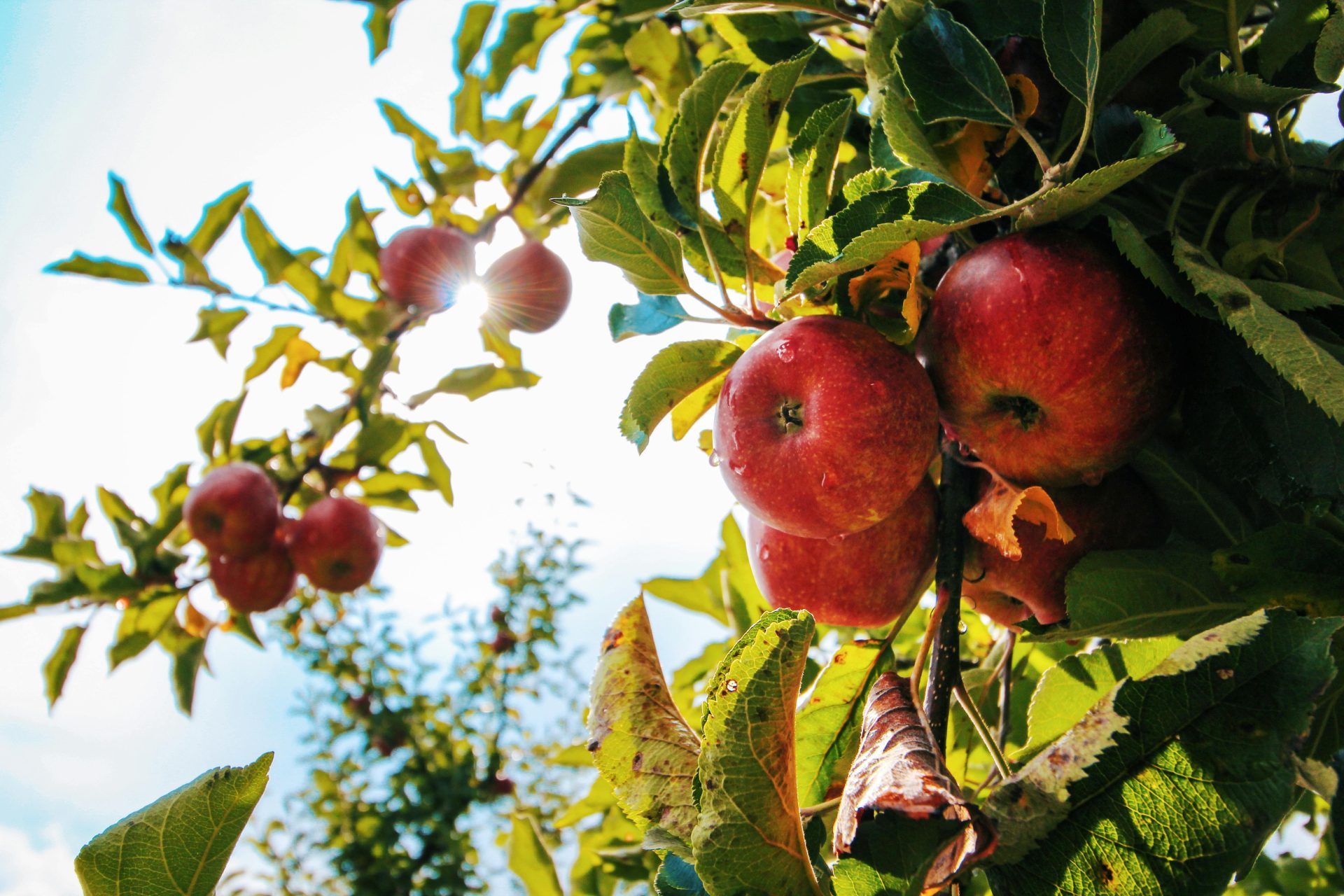Kent research is set to play a pivotal role in a groundbreaking new project which could revolutionise fruit production in the UK.
Professor of Agri-Environmental Economics, Iain Fraser, is joining a world-class consortium of partners to deliver the £4.5 million Precision Orchard Management for the Environment (POME) project. Led by agronomist Rob Saunders from H.L. Hutchinsons, the team will develop a commercially viable system which can precisely target orchard inputs to specific trees, or parts of a tree.
Funded by Innovate UK and DEFRA, the project will see Professor Iain Fraser collaborate with other academics, engineers, agri-tech startups, software developers, equipment suppliers, NIAB horticultural experts and farmers to implement technology which will improve the sustainability and efficiency of one of Kent’s leading industries.
Specifically, Iain will evaluate the difference between existing technology and new technology, which includes robots, drones and innovative chemical spraying systems. As well as calculating any improvements in efficiency, he will examine the likelihood that farmers will adopt the new technology and consider how the environmental benefits relate to UK environmental policy post EU-exit. By combining all three, he will be able to provide the project consortium with an informed assessment of whether the new spray technology is commercially viable.
Commenting on the impact the project will have on the farming community, Mr Saunders said, ‘The system we are building will cater for different sizes of farm business and with optional services depending on the farm’s need. The industry has changed a lot in recent years and will continue to do so as technology advances, and we believe systems like this will become commonplace.’
Iain has developed his understanding of orchard management, crop production and yields through his involvement in a series of projects, including the development of better crop yield forecasts to help farmers and supermarkets ensure there is sufficient produce available to meet demand. This project comes off the back of the Interreg-funded project Beespoke which examined the ‘pollinator deficit’ and how the support of wild pollinators by appropriate management can support both crop production and biodiversity.

